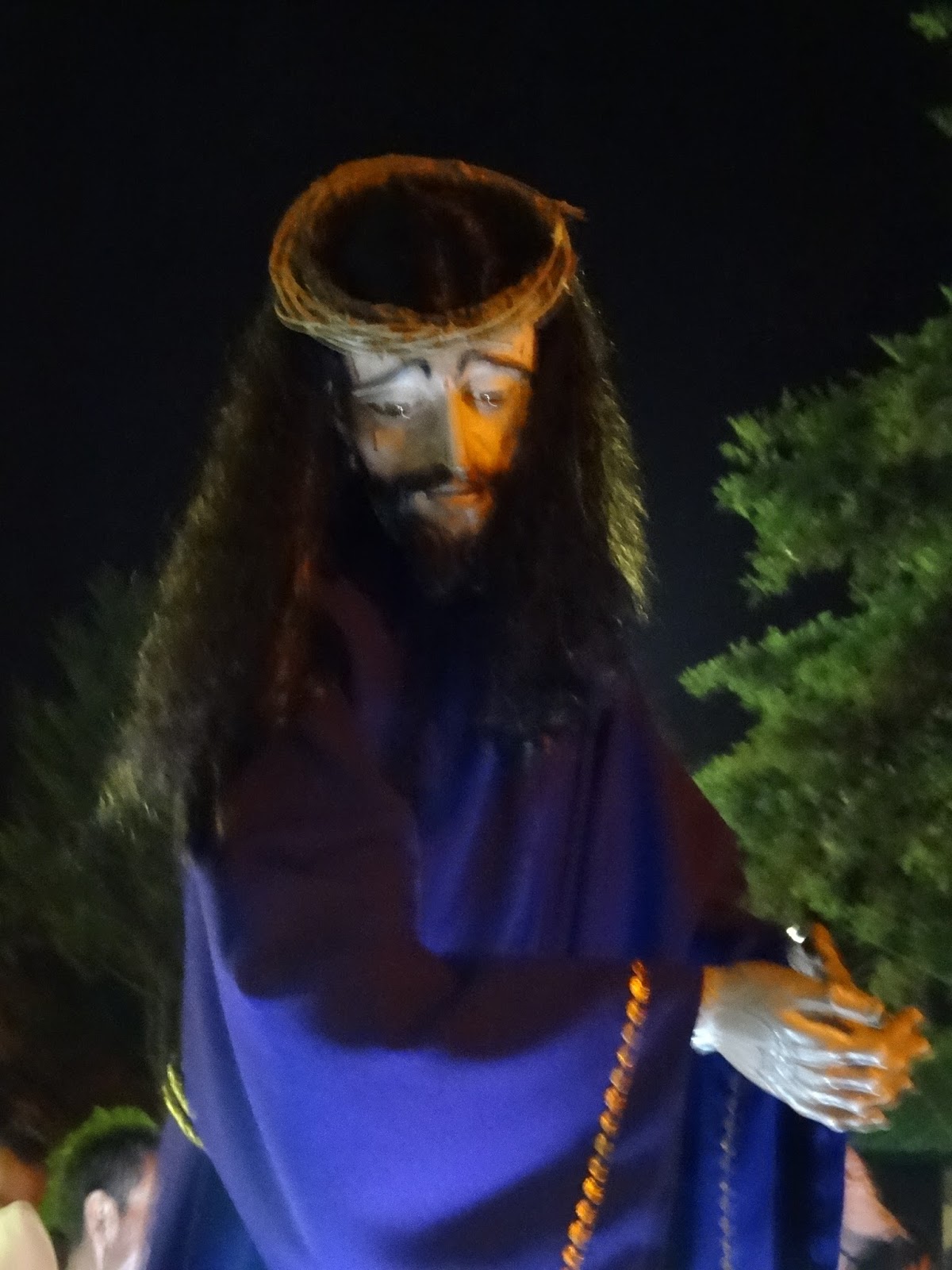Holy Thursday is a busy day here. It didn’t help that I’ve
got a chest cold. But it was a good day.
In the morning there was the Chrism Mass in Santa Rosa de
Copán where the bishops celebrates with the priests and blesses the holy oils
used in the sacraments.
I thought it started at 10 am and so arrived late, but I
just missed the readings and part of the bishop’s sermon. When I arrived at
10:45 he was speaking and spoke until about 10:15.
The Mass was held in an auditorium since the cathedral is
too small. But, in order to accommodate more people, the bishop had celebrated
a Chrism Mass with the priests in the Intibucá deanery, since there are places
there that are far from Santa Rosa.
Nothing special about the Mass struck me, except for one
thing. There were more than thirty police men and women in and outside the
auditorium during the Mass. I don’t know why. At the end of the Mass the bishop did tell the police that they are supposed to "protect and serve" and, referring to the words of Monseñor Romero that they should refuse orders to kill.
But still the presence of the police is disturbing. Are the police saying that we can even show our presence even inside the church?
But still the presence of the police is disturbing. Are the police saying that we can even show our presence even inside the church?
After the Chrism Mass I set out for the Dulce Nombre. Padre
German had asked me to go to the village of El Prado de la Cruz, for the
Celebration of the Word, with the Washing of the Feet, and Communion.
When I arrived I realized that there was a bit of
miscommunication. They expected me to come in the morning or at 1 pm, even though
Padre had told the coordinator of the zone that I’d come at three.
People slowly came in and when we had a decent sized group
we started.
For the washing of the feet we had men, women, and children.
Some of the feet were rough – from poor shoes or walking barefoot, some were
dirty from walking the dirt streets of the village. But it was a privilege to
be able to wash their feet.
After the celebration, I was asked to bring communion to a
bed-ridden woman. Of course, I said. But then between ten and fifteen people,
mostly women and kids, crammed into the truck.
We went and prayed with the woman and I gave her communion.
Then I asked all the people to extend their hands over her in prayer. I placed
my hands on her head and then many others joined me.
What solidarity with the sick. Not only a few people but
even children went to pray. What a sign of the service that we see in Jesus’
washing the feet.
I went back to Dulce Nombre in time for the evening Mass and
more.
The Mass began with 12 men walking in with the priest in the
entrance procession. Padre German gave a strong sermon on service of others and
then washed the feet of the twelve men.
My first thought was, “Oh, no. Restricting this to men.” I
am sure this is due to the piety and tradition of the people in town, where
each “apostle” wore a sash with the name of an apostle.
But after he washed the twelfth man, Padre approach a woman
in a wheel chair and asked if he could wash her feet. It was moving – and woman
nearby, the daughter of the woman, was close to tears.
After Mass, the Eucharist in the monstrance was carried in
procession to what they call here the monumentum,
the monument – a shrine set apart for private prayer before the Eucharist. In
some places people pray in groups until midnight. It’s a tradition that I
really like, but they had different plans here.
The statue of the Nazareno was taken in procession to
another chapel in town in a procession called the prendimiento, the capture of Jesus.
I begged off taking part in the procession, because of my
chest cold and because Good Friday will be a fairly busy day for me.









No comments:
Post a Comment